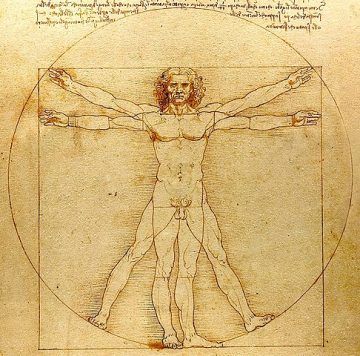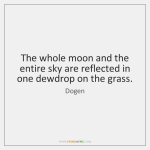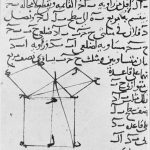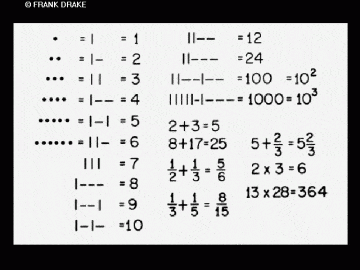by Jonathan Kujawa

In the past few months I’ve been thinking a fair bit about math and humanity. We often think of math as outside of us but, in fact, it is a deeply human enterprise.
A group of us in the University of Oklahoma (OU) math department have been trying to establish a “bridge program” for students coming out of undergraduate but not quite ready for graduate school. In meetings with various university administrators, I’ve had to fumble my way towards an articulation of the sort of students we hope to have in the program. There are several such programs around the country with most designed to reach one or more groups that are underrepresented in mathematics. But, certainly, to have an effective program and to get administrators to open their wallets, you really need to be able to say who you’re trying to reach [1].
Oklahoma happens to be the home of Langston University, the westernmost historically black college or university (HCBU), along with a number of universities which serve sizable populations of Native Americans. The idea of a bridge program at OU came out of a thought-provoking meeting this past spring with members of the Langston math department. In that meeting we discussed ways we could partner together. A bridge program that gives Langston students the opportunity to be part of a graduate program while staying in Oklahoma would be a great start. More generally, like those other math bridge programs around the country, we would like to knock down barriers for members of under-represented groups who would like to dive more deeply into mathematics.
But as I’ve thought about it, I think it should be more than that. If I were to encapsulate our bridge program in a phrase, I would say our program should be for students who have both potential and interest in graduate school in mathematics, but not yet the requisite background.
This would naturally include people from underrepresented groups. But it could also include students from a small college in the Oklahoma panhandle who size precludes them from offering the full menu of typical undergraduate courses. Or a student who started at a community college or with a non-math major, and only came to the “good stuff” very late in their college career. We have a student in our graduate program now who majored in literature at a small liberal arts school, discovered Calculus and higher math through independent reading after graduation, and is now discovering worlds he couldn’t have imagined a year or two ago. “Math for all” should be our motto.
 Mathematics is universes upon universes. There is space to play, to do serious research, or just to marvel at its wonders. You could study math for a lifetime and not plumb its depths. There is room for everyone. Perversely, though, math is frequently used as a gate-keeper in education. At best it is often a brutal form of hazing for students of engineering, economics, and the sciences. You prove you belong by surviving seemingly pointless abuse. At worst, it is a gauntlet meant to cut down the number of students who are able to enroll in their desired major or even enroll in college at all. And I have to admit math instructors are as guilty of this as anyone. How many of us have been told explicitly or implicitly that we weren’t good at this stuff?
Mathematics is universes upon universes. There is space to play, to do serious research, or just to marvel at its wonders. You could study math for a lifetime and not plumb its depths. There is room for everyone. Perversely, though, math is frequently used as a gate-keeper in education. At best it is often a brutal form of hazing for students of engineering, economics, and the sciences. You prove you belong by surviving seemingly pointless abuse. At worst, it is a gauntlet meant to cut down the number of students who are able to enroll in their desired major or even enroll in college at all. And I have to admit math instructors are as guilty of this as anyone. How many of us have been told explicitly or implicitly that we weren’t good at this stuff?
Conversely, a boost at the right time can make all the difference in the world. I grew up in a small town in Minnesota and many of my relatives have never gone to college. My parents made it clear that college wasn’t optional. But the world of academia, teaching, research, and the pure pleasures of mathematics was outside my worldview. Who knew you could have a job doing this stuff all day?
If it wasn’t for Carlton Urdahl and Al Heine at Buffalo High School in Buffalo, MN I may well have not ended up in the sciences. If Jeff Rosoff and the other faculty at Gustavus Adolphus College hadn’t taken the initiative to teach us what we were missing in our undergraduate education, I’m sure Mark Tomforde and I would have found graduate school even more daunting than it was. If it wasn’t for the advice and good cheer of my advisor and fellow graduate students, I may well not have stuck it out. And while my grandfather and David Brunet weren’t mathematicians, they did show me what it meant to live a rich life centered on your values and interests. By good luck and hard work I ended up here and couldn’t imagine being anywhere else.
When I think about the doors which were already open to me and the folks who opened more along the way, I feel an obligation and a pleasure in doing the same for others. This point was driven home when I read the recently released “Living Proof“. It is a book jointly published by the American Mathematical Society and by the Mathematical Association of American and can be downloaded for free from the link. It is a series of short essays by mathematicians where they share the doubts, challenges, and frustrations they faced in their careers. It was an illuminating reminder of the many paths people take. I plan to make it required reading for my graduate and undergraduate students. Both so they might see themselves reflected in its pages and hopefully find empathy for their own students and classmates.
Math is rewarding and beautiful and amazing, but it is also hard! Part of the pleasure is in the challenge, but it’s also easy to become discouraged. Math is hard enough on its own. We shouldn’t be gate-keepers, but gate-openers. We should share books, podcasts, and videos with anyone who is interested. We should have some fun puzzles and open problems in our back pocket for cocktail parties. Ones that can capture the imagination of anyone with a bit of curiosity.

That is true as far as it goes. But mathematics research is guided by humans’ sense of beauty and importance. There are plenty of true math facts which a computer could verify, but nobody would care a fig to know. And even what is true depends on humanity. While computer verification is starting to become a thing, we still depend on humans to confirm the correctness of arguments. After all, after seven years it is still contested whether or not Shinichi Mochizuki has proven the famous abc conjecture. The world’s experts cannot agree if it is settled or not.
But, you argue, in the movies don’t they always use the prime numbers when making First Contact with an alien species? Sure, and we put plenty of math on the Voyager spacecraft:

Inescapably, mathematics depends on humanity and humanity depends on mathematics. Several years ago Francis Su wrote the beautiful “Mathematics for Human Flourishing“. In it, Dr. Su argues that mathematics is inextricably intertwined with the deepest parts of what makes us human. If you think of mathematics as a cold, logical realm suitable only for Vulcans which has nothing to do with things like love, justice, or play, then you must read “Mathematics for Human Flourishing“.
While I doubt I’ll ever grasp mathematics in all its complexity, I am ever more sure it belongs to all of us.
[1] Although you might think a University who seems to have “racially charged” incidents altogether too often would race to support a program to support under-represented groups.
[2] Image from here.
[3] Image and a further discussion of the math on the Voyager spacecraft can be found here.
